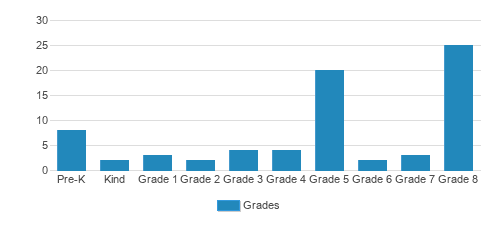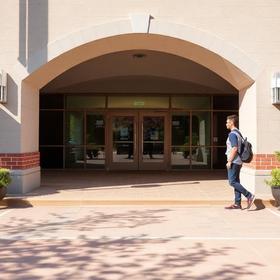Saint Paul Lutheran School exists and operates as an extension of Saint Paul Lutheran Church for the purpose of providing a Lutheran Christian education to children placed at the elementary level.
We recognize that education is a life-long process consisting of formal and informal experiences with the home, school, church, and neighborhood.
St. Paul seeks to work in partnership with parent and child to fully realize the child's God-given potential, in an environment where love, forgiveness, and admonition prevail.
To this end, it is essential for the school and home to work together, as optimal learning occurs when school and home mutually support and reinforce common values.
The successful child will best develop as a productive Christian when there is full commitment of church, teachers, parents, and self to these Christian values.
St. Paul Lutheran School admits students of any race, color or national and ethnic origin to all the rights, privileges, programs, and activities generally accorded or made available to students at the school.
St. Paul does not discriminate on the basis of gender, race, color, or national or ethnic origin in administration of their educational policies, athletic, and other school administered programs.
School Overview
Religious Affiliation
Grades Offered
Grades Prekindergarten-1
Student Body
Total Students
88 students
Student Body Type
Co-ed
% Students of Color
25%
State avg.: 34%
Students by Grade

Academics and Faculty
Total Classroom Teachers
3 teachers
Student-Teacher Ratio
29:1
National avg.: 13:1
Tuition and Acceptance Rate
Admission Deadline
None / Rolling
School Notes
- Saint Paul Lutheran School exists and operates as an extension of Saint Paul Lutheran Church for the purpose of providing a Lutheran Christian education to children placed at the elementary level. We recognize that education is a life-long process consisting of formal and informal experiences with the home, school, church, and neighborhood. St. Paul seeks to work in partnership with parent and child to fully realize the child's God-given potential, in an environment where love, forgiveness, and admonition prevail. To this end, it is essential for the school and home to work together, as optimal learning occurs when school and home mutually support and reinforce common values. The successful child will best develop as a productive Christian when there is full commitment of church, teachers, parents, and self to these Christian values. St. Paul Lutheran School admits students of any race, color or national and ethnic origin to all the rights, privileges, programs, and activities generally accorded or made available to students at the school. St. Paul does not discriminate on the basis of gender, race, color, or national or ethnic origin in administration of their educational policies, athletic, and other school administered programs.
Source: Verified school update
Frequently Asked Questions
When is the application deadline for St. Paul Early Childhood Center?
The application deadline for St. Paul Early Childhood Center is rolling (applications are reviewed as they are received year-round).
Recent Articles

Scholarships & Financial Aid for 2026 Entry
A comprehensive guide to scholarships, bursaries, and financial aid options for 2026 entry at U.S. private schools.

International Students and Private School Admissions in 2025
A comprehensive 2025 guide to private school admissions for international students, covering visas, testing, timelines, costs, and expert strategies.

Private School Curriculum in 2025: Key Courses and Trends
Explore what private schools are teaching in 2025, from core subjects and AI to global studies and tuition trends shaping private education today.







